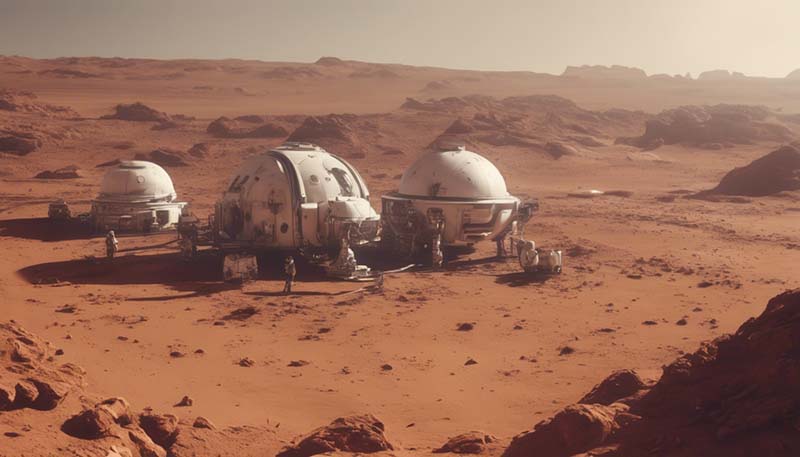Mars Colonization: Scientific Feasibility and Ethical Concerns
Introduction
The concept of colonizing Mars has long been a staple of science fiction, but with advancements in space technology, it is becoming an increasingly realistic prospect. The potential colonization of Mars raises numerous scientific and ethical questions that must be addressed before any such mission can be considered successful.
Scientific Feasibility
Technological Challenges
The technological challenges of colonizing Mars are immense. From the initial launch to the establishment of a sustainable habitat, every step requires innovation and careful planning. Key issues include long-duration human spaceflight, life support systems, radiation protection, and the development of in-situ resource utilization (ISRU) for construction materials and life support consumables.
Advertisement
Habitat and Infrastructure
Once on Mars, colonists will require habitats that can protect them from the harsh environment. These habitats must be durable, easily assembled, and capable of withstanding Mars' extreme temperatures, dust storms, and low atmospheric pressure. Additionally, the infrastructure for energy production, food cultivation, and waste management must be sustainable and resilient.
Health and Adaptation
The human body has not evolved to cope with the conditions on Mars. Prolonged exposure to microgravity can lead to muscle atrophy and bone density loss. Moreover, the Martian day (sol) is slightly longer than an Earth day, which could disrupt human circadian rhythms. Understanding and mitigating these health risks is critical.
Ethical Concerns
Human Rights and Well-being
The ethical concerns surrounding Mars colonization begin with the protection of the rights and well-being of the colonists. Issues such as informed consent, the right to health, and the psychological impact of isolation must be thoroughly considered.
Planetary Protection
There is a significant ethical imperative to prevent biological contamination of Mars, both to protect potential Martian life forms and to preserve the scientific integrity of the planet. This requires strict protocols for sterilization and monitoring of equipment and supplies.

Socioeconomic Disparities
The opportunity to colonize Mars may exacerbate existing socioeconomic disparities. Access to such a mission may be limited to those who can afford it, leading to a potential socio-economic divide between Earth and Mars.
Governance and Political Implications
The governance of a Martian colony raises questions about who would hold authority and how laws and regulations would be established. The potential for conflicts over resources and power must be anticipated and addressed.
Conclusion
While the scientific feasibility of Mars colonization is an active area of research and development, the ethical concerns it raises are equally important. As we progress towards this ambitious goal, it is crucial to engage in a global dialogue that addresses these ethical challenges to ensure that Mars colonization is pursued responsibly and for the benefit of all humanity.
Note: This article is a brief overview and does not cover all aspects of the topic. The full article would delve into each section in greater detail, providing a comprehensive analysis of the scientific and ethical considerations of Mars colonization.
Comment